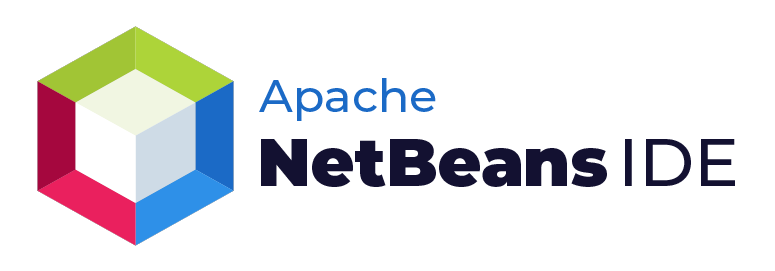- Introduction
- What is PHP IDE and Why Do We Need It?
- 7 Best PHP IDEs
- Conclusion
- FAQs
- Q.1: Which IDE is best for PHP beginners?
- Q.2: Which free IDE is best for PHP?
- Q.3: Which IDE is best for PHP and Why?
- Q.4: What are the main features of PHP IDE?
- Additional Resources
Introduction
PHP or PHP: Hypertext Preprocessor is one of the most popular scripting languages used extensively for web development. To be more specific, PHP facilitates server-side or back-end development, and it is utterly suitable for developing dynamic web applications.
As a PHP developer, it is your responsibility to write PHP code to add certain functionalities to a web application. However, there’s more than just simply writing code; you need to test and debug code, avoid redundant code, and make sure to develop projects quickly while maintaining high accuracy. In general, PHP code editors make the lives of developers easy as they make it possible to read, write and edit PHP code quite conveniently. Also, code editors allow the management of different projects and their files. However, there is even a powerful alternative to the code editor, and that is, an IDE or Integrated Development Environment.
There are several PHP IDEs out there and choosing the best IDE for PHP can be a tedious task. So, to help you out, we are going to list the most popular PHP IDEs here. But before that, let’s help you understand what an integrated development environment (IDE) is, and why you may require a PHP IDE.
Confused about your next job?
What is PHP IDE and Why Do We Need It?
To understand the utility of a PHP IDE, you need to know what an IDE is capable of accomplishing in general. Well, to start with, an IDE or integrated development environment is software that brings together all the essential developer tools, such as a code editor, a debugger, and various automation tools, like profiler and a documentation tool.
The best part about working with an IDE is that you need not look for other tools to develop and test projects. Also, the automation tools available in an IDE helps to speed up the development process, and thus you will be able to complete projects faster.
Now when it comes to a PHP IDE, it is an IDE with dedicated support for PHP development. You can use it to develop PHP projects of all complexity levels, and also manage all your projects from a single GUI. As a professional developer, working with an IDE is always a good choice as you will be able to become more productive.
7 Best PHP IDEs
Whether you are a beginner or a professional PHP developer, there are chances that you may be looking for the best PHP IDE. Well, we have handpicked the most popular and powerful PHP IDEs that you may consider using. Also, we will give a brief overview of each IDE and discuss their key features to make it easy for you to make a choice. So, here it goes:
1. PHPStorm

Starting off our list with the most popular PHP IDE at the moment, which is none other than PHPStorm. This IDE for PHP comes loaded with a wide variety of features that simply help developers accomplish their tasks much more efficiently.
Developed by JetBrains, which is a leading software development company located in the Czech Republic, PHPStorm is a dedicated PHP IDE. It was first released in 2009, and since then, JetBrains has been constantly revamping and adding more features to make PHPStorm a complete value-for-money product.
While PHPStorm is evidently the first choice of many PHP developers, it isn’t free to use. Also, unlike some other IDEs offered by JetBrains that offer a free community edition, you are not going to get more than a 30-day free trial with PHPStorm. Nonetheless, the pricing of this IDE is nominal considering the functionalities that it has. Also, PHPStorm supports HTML, CSS, and JavaScript which are essential for developing modern web applications.
Key Features
- It comes with a smart PHP code editor that supports auto code completion, syntax highlighting, code refactoring, error detection, and many other features.
- The visual debugger makes it quite easy to debug PHP code by allowing you to set multiple breakpoints, inspect variables, and analyze expressions.
- PHPStorm enables you to write unit tests for the PHP code with the help of PHPUnit and other testing frameworks.
- It supports several popular version control systems, including Git, SVN, and Mercurial.
- You can integrate it with the tools required for writing SQL code and interacting with databases.
Supported Platforms
- Windows, macOS, and Linux
Pricing Plans
- $199 per user for the first year, $159 for the second year, and $119 for the third year.
2. Zend Studio

Zend Studio is yet another PHP IDE that has been successful in gaining the attention of PHP developers across the globe. It is a suitable choice for anyone who wants to develop web applications with PHP version 5.5 and above.
It is a commercial IDE developed by Zend Technologies, and you need to purchase its license to use it for developing PHP applications. One key thing to know about Zend Studio is that it is majorly inspired by the PDT or PHP Development Tools plugin for Eclipse IDE. Zend Studio has an intuitive interface that is easy to use. Also, it avoids clutter to make sure that you can easily access its features while staying focused on your work.
When it comes to debugging, Zend Studio outperforms other PHP IDEs as it offers integration with Zend Server, which facilitates root cause analysis. Moreover, Zend Server allows you to use certain tools, namely Xdebug, Zend Debugger, and Z-ray to speed up the debugging process while making it more efficient.
Key Features
- Smart code completion, code refactoring, and real-time error detection are some of the key highlights of Zend Studio’s code editor.
- Apart from PHP code, you can use the IDE to do frontend development by writing HTML, CSS, and JavaScript code.
- It allows integration with version control systems like Git, CVS, and SVN.
- You can enhance the functionality of Zend Studio by installing various plugins available at the Eclipse Marketplace.
- With Docker support, you can manage Docker containers and images right from the Zend Studio.
- You can easily deploy your PHP applications on various cloud platforms, including Amazon AWS, Microsoft Azure, Red Hat OpenShift, and others.
Supported Platforms
Windows, macOS, and Linux
Pricing Plans
There are several licensing options for Zend Studio that start at $89 and go up to $670.
3. Komodo

Komodo is a popular IDE that is utterly suitable for working with dynamic programming languages, including PHP. Developed by ActiveState, Komodo has been thriving since its launch in 2000. It is written in several programming languages that are namely C, C++, JavaScript, CSS, Python, Perl, and XUL. When it comes to PHP development, Komodo can be a great choice due to its wide range of features that streamlines the overall development process. From writing code to test it for errors, this IDE will help you develop PHP projects from scratch.
Along with PHP, you can completely rely on Komodo to work with other web development technologies like HTML, CSS, JavaScript, Laravel Blade, and Drupal. Also, its UI is minimal and easy to learn. You can use the IDE to become more productive and develop PHP projects with better accuracy.
Key Features
- The visual debugging feature makes it quick and easy to debug PHP code in Komodo.
- It allows you to write and run unit tests with PHPUnit.
- Its source-code editor comes loaded with various functionalities, including auto code completion, syntax highlighting, code folding, and multi-window editing.
- Komodo IDE supports code profiling, which makes it possible to examine the behavior and performance of functions within the code.
- It can integrate with version control tools, like Mercurial, Git, Subversion, and CVS.
- Komodo provides support for customization and extending its abilities using themes and add-ons, respectively.
- The PHP IDE offers code collaboration to allow multiple members to work on the same doc simultaneously.
Supported Platforms
Windows, macOS, and Linux
Pricing Plans
It offers three pricing tiers: Free, Team, and Enterprise. The Free tier is available at zero cost and is suitable for individual developers while the Team tier is suitable for small teams and is available at $84 per month. The Enterprise tier is suitable for large teams and enterprises and its pricing varies as per the needs of the users.
4. NetBeans

NetBeans or Apache NetBeans is a popular JavaIDE that is open-source and free to use. While it is a dedicated IDE for Java, it supports various other programming languages, including PHP. The credit for its development majorly goes to Sun Microsystems, which was acquired by Oracle Corporation in 2010.
Despite being a Java IDE, NetBeans comes with strong support for PHP development. To start writing PHP code in NetBeans, you simply need to install some appropriate extensions. Also, the IDE supports HTML5, CSS3, and JavaScript, which helps you to develop full-fledged web PHP applications. Another great thing about NetBeans is that it provides guides, tutorials, and articles to help you get started with PHP development using NetBeans IDE. You can access these learning resources from the official website of NetBeans. Also, when it comes to the overall experience, the NetBeans IDE comes loaded with several features to elevate the experience of PHP developers.
Key Features
- The PHP IDE comes with a smart code editor that offers code formatting, autocomplete, code refactoring, code folding, and many more features.
- It supports various keyboard shortcuts.
- You can extend the functionality of NetBeans by adding various plugins, like Dracula LAF for NetBeans, EasyPmd, and Git Toolbar.
- The Xdebug tool allows you to debug PHP code locally as well as remotely.
- You can write unit tests using PHPUnit and Selenium frameworks.
Supported Platforms
Windows, macOS, Linux, and BSD
Pricing Plans
The IDE is completely free to use.
5. Eclipse PDT

The next entry on our list of the best PHP IDEs is Eclipse, which is also a dedicated Java IDE that supports PHP as well. Developed by LVD Foundation, Eclipse is among the oldest IDEs as it was first released back in 2001. Over the years, this IDE integrated several advanced and cutting-edge features that have made it highly popular among developers all over the globe.
Eclipse PDT, where PDT stands for PHP Development Tools, is an Eclipse project that provides all the components required for creating PHP applications. Basically, Eclipse PDT is a plugin that enables the Eclipse IDE to provide extensive support for PHP development. While most of the capabilities of Eclipse are pretty much similar to other leading IDEs, it’s the intuitive user interface that helps it stand out from the rest. All the elements are placed thoughtfully across the interface to ensure that developers can easily focus on their tasks. Additionally, the user interface is customizable, thus you can add a personal touch to this IDE.
Key Features
- Eclipse PDT is a sophisticated code editor that is loaded with various smart editing features, like code assist and smart insert.
- It comes with an integrated web server that makes it quite easy to run and test PHP files.
- It offers advanced code formatting to help you keep your code well-arranged and easy to understand.
- It supports the Git version control system.
- Eclipse is free and open-source software.
- It provides support for profiling using Xdebug and Zend Debugger.
Supported Platforms
Windows, macOS, Linux, and Solaris
Pricing Plans
The IDE is completely free to use.
6. Aptana Studio

For anyone who is into web or software development for quite some time, might have probably heard of Aptana Studio. It is considered to be the best IDE for PHP by many professional developers. One of the most noticeable things about Aptana Studio is that it is based on Eclipse IDE, and it has all the tools that you would need to develop PHP projects of any scale.
While Aptana Studio is a web development IDE that offers native support for frontend technologies, you can use it for PHP development by using the PHP plugin. From smart coding assistance features to an integrated debugger, this IDE offers everything that you need to take your development skills to the next level. Also, The best thing about Aptana Studio is that it is open-source and is available at no cost.
Key Features
- It offers a built-in terminal that makes it utterly simple to execute operating system commands.
- Aptana Studio offers code formatting and error highlighting.
- It can integrate with Git.
- It offers a deployment wizard.
- The IDE comes with a galore of customization options.
- Aptana Studio supports auto indentation.
Supported Platforms
Windows, macOS, and Linux
Pricing Plans
The IDE is completely free to use.
7. Cloud9

Unlike the other entries on this list of the best PHP IDEs, Cloud9 is a cloud-based IDE, or you can say an online PHP IDE. It is offered by AWS (Amazon Web Services), and you can access the IDE from anywhere and from any device using a web browser. Also, being an Amazon product, you can fully rely on the Cloud9 IDE for developing PHP-based applications.
To use Cloud9 for PHP development, you need to use AWS SDK for PHP. This online PHP IDE is the go-to choice for anyone who doesn’t want to manage development tools and project files locally on a system. Also, being a cloud-based IDE doesn’t mean that Cloud9 is not powerful. In fact, it has all the functionalities that you would find in a standard PHP IDE.
Key Features
- It offers a built-in terminal.
- The integrated debugger in Cloud9 lets you debug your PHP code instantly.
- It supports various keyboard shortcuts to help developers access various features quickly.
- You can customize the appearance of Cloud9 by accessing a wide variety of themes.
- It is possible to collaborate with your team members in real-time by sharing the code with them.
Supported Platforms
Web browsers, including Google Chrome, Microsoft Edge, Firefox, and Opera
Pricing Plans
Starts from as little as $2 per month. (AWS follows the pay-as-you-go pricing model, so the exact charges will depend on the usage of its services).
Conclusion
Developing PHP projects using an IDE can be a great decision for any developer. While learning to work with a PHP IDE can be a little challenging, you will find all your efforts worth it once you become comfortable with it.
The PHP IDEs mentioned above are the best ones out there, and they are capable of making your experience of developing PHP-based web applications better. Also, while choosing an IDE, it is important to consider your requirements quite well.
For instance, if you want an IDE that provides all the essential features at zero cost, you can go for NetBeans, EclipsePDT, or Aptana Studio. Similarly, if you want an IDE with advanced features and regular updates, and are willing to pay for it, then PHPStorm and Zend Studio can be the best pick.
FAQs
Q.1: Which IDE is best for PHP beginners?
Ans. There are several IDEs like NetBeans, PHPStorm, and EclipsePDT that offer detailed documentation and tutorials to make it easy for beginners to get started with them. Also, they offer a simple and intuitive interface that is easy to learn and get along with.
Q.2: Which free IDE is best for PHP?
Ans. There are several free and open-source IDEs for PHP out there with the most popular ones being NetBeans, Aptana Studio, and EclipsePDT.
Q.3: Which IDE is best for PHP and Why?
Ans. The choice of the best PHP IDE varies from developer to developer. However, certain IDEs, such as PHPStorm, Zend Studio, NetBeans, Eclipse PDT, and Cloud9 are the ones preferred by professionals. They are ideal for PHP development due to their features that facilitate PHP development, including a smart code editor, quick PHP code debugging, support for unit tests, live test server, and integration with version control systems, like Git.
Q.4: What are the main features of PHP IDE?
Ans. Some of the essential features of a PHP IDE include auto code completion, syntax highlighting, code refactoring, built-in debugger, and support for version control systems.




